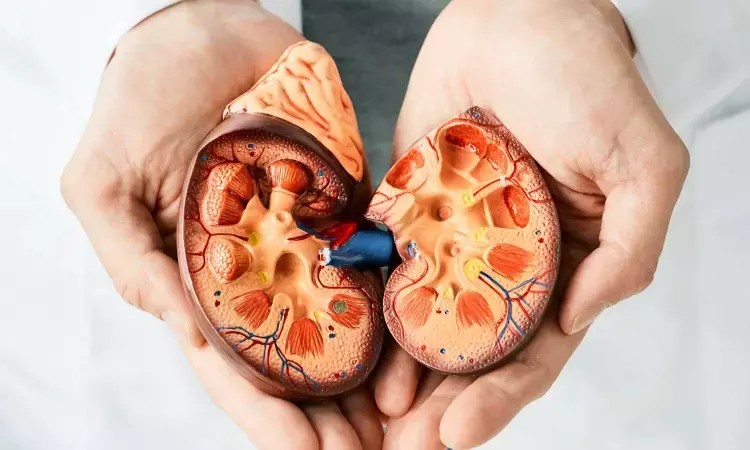- Home
- Medical news & Guidelines
- Anesthesiology
- Cardiology and CTVS
- Critical Care
- Dentistry
- Dermatology
- Diabetes and Endocrinology
- ENT
- Gastroenterology
- Medicine
- Nephrology
- Neurology
- Obstretics-Gynaecology
- Oncology
- Ophthalmology
- Orthopaedics
- Pediatrics-Neonatology
- Psychiatry
- Pulmonology
- Radiology
- Surgery
- Urology
- Laboratory Medicine
- Diet
- Nursing
- Paramedical
- Physiotherapy
- Health news
- Fact Check
- Bone Health Fact Check
- Brain Health Fact Check
- Cancer Related Fact Check
- Child Care Fact Check
- Dental and oral health fact check
- Diabetes and metabolic health fact check
- Diet and Nutrition Fact Check
- Eye and ENT Care Fact Check
- Fitness fact check
- Gut health fact check
- Heart health fact check
- Kidney health fact check
- Medical education fact check
- Men's health fact check
- Respiratory fact check
- Skin and hair care fact check
- Vaccine and Immunization fact check
- Women's health fact check
- AYUSH
- State News
- Andaman and Nicobar Islands
- Andhra Pradesh
- Arunachal Pradesh
- Assam
- Bihar
- Chandigarh
- Chattisgarh
- Dadra and Nagar Haveli
- Daman and Diu
- Delhi
- Goa
- Gujarat
- Haryana
- Himachal Pradesh
- Jammu & Kashmir
- Jharkhand
- Karnataka
- Kerala
- Ladakh
- Lakshadweep
- Madhya Pradesh
- Maharashtra
- Manipur
- Meghalaya
- Mizoram
- Nagaland
- Odisha
- Puducherry
- Punjab
- Rajasthan
- Sikkim
- Tamil Nadu
- Telangana
- Tripura
- Uttar Pradesh
- Uttrakhand
- West Bengal
- Medical Education
- Industry
Cystatin C promising as additional biomarker to calculate kidney function and stage CKD

Mass General Brigham was one of the first institutions to remove race as a variable in formulas used to estimate glomerular filtration rate, the standard measure of kidney function. A national task force recommended that organizations move towards the adoption of race-free kidney function equations and utilize an additional marker called cystatin C to verify kidney function. Historically, race-dependent GFR estimates using creatinine may have contributed to underdiagnosis and treatment of chronic kidney disease in Black patients. The change to race-free kidney function calculation has resulted in one in three Black patients at Mass General Brigham being reclassified to reflect a more severe stage of chronic kidney disease. Brigham and Women’s Hospital has led on the utilization of cystatin C as an additional kidney function marker to estimate eGFR. Investigators at the Brigham looked at 1,783 inpatients and outpatients who had cystatin C and creatinine levels drawn within 24 hours from January 1, 2018 until September 9, 2020. They evaluated how cystatin C eGFR correlated with creatinine eGFR and how it indicated differences in CKD staging.
They found that cystatin C-based eGFR was strongly correlated with creatinine-based eGFR and that 27 percent of patients would be classified as having a more severe chronic kidney stage based on cystatin C test results; the likelihood of having a change in stage was higher among patients who had kidney function on the border between stages. Researchers also found that Black patients were less likely to be reclassified to a more severe stage than White patients, but there were limitations in the self-identified race data. These results are important, as Black, Hispanic, and Native American patients have been shown to have less timely nephrology referrals, transplant access, home dialysis treatment and increased progression to kidney failure.
“Our study shows that utilization of cystatin C can lead to changes in CKD staging, which can impact clinical management,” said Mallika Mendu, MD, Associate Chief Medical Officer, Associate Professor of BWH’s Nephrology Division, and senior author of the study. “Nationally, there should be a focus on making this important test affordable and accessible to a wide, diverse spectrum of patients.”
Reference:
Eric Raphael Gottlieb, Christopher Estiverne, Nicole V. Tolan, Stacy E.F. Melanson, Mallika L. Mendu, Published:January 17, 2023 DOI:https://doi.org/10.1016/j.xkme.2023.100600
Dr Kamal Kant Kohli-MBBS, DTCD- a chest specialist with more than 30 years of practice and a flair for writing clinical articles, Dr Kamal Kant Kohli joined Medical Dialogues as a Chief Editor of Medical News. Besides writing articles, as an editor, he proofreads and verifies all the medical content published on Medical Dialogues including those coming from journals, studies,medical conferences,guidelines etc. Email: drkohli@medicaldialogues.in. Contact no. 011-43720751


